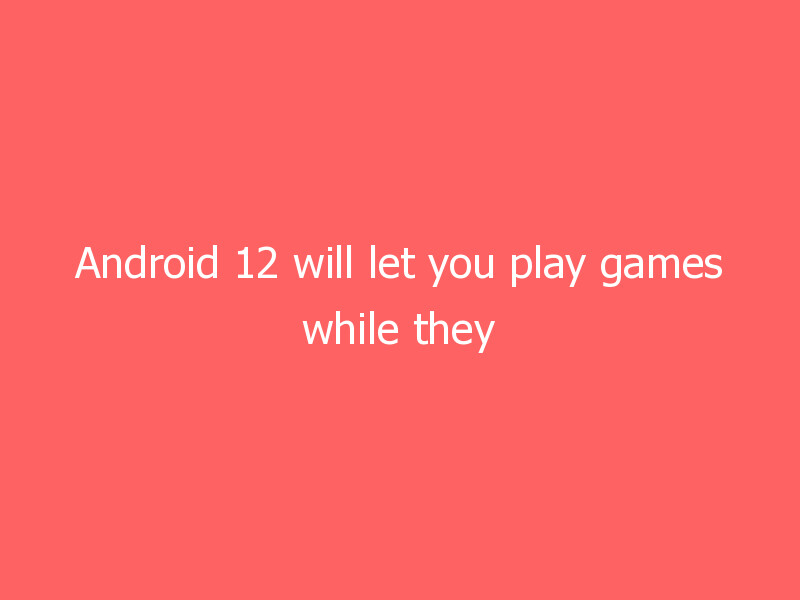Faster internet and mobile data speeds are cutting wait times for game and entertainment downloads. The two art forms helped people through lockdowns, so it makes sense for tech and media gatekeepers to maintain that momentum as life slowly returns to normal. Netflix did just that by allowing subscribers to watch partially downloaded shows and movies. Now, Google is doing the same for mobile games. The latest version of Android will allow you to fire up a game long before it completes downloading.
According to Google, you’ll eventually be able to start playing Play store titles in seconds. More specifically, it says that games will be ready to open at least two times faster than before. One example shows a 127mb game being fit to play with just 20 percent downloaded. For now, developers can sign up to a beta for the feature, but Google says it will eventually become the default system for Play Store games.
The tech giant has tried to tear down some of the barriers around digital gaming in the past. Notably, it launched Instant Games in 2018 that loaded up ahead of the full installation process. While its Apple Arcade rival, Play Pass, allows subscribers to try a library of apps for a monthly fee. Then there’s Stadia, Google’s promising (but troubled) cloud gaming service that does away with game downloads.
More broadly, the play-as-you-download feature comes at an opportune time. Like their console and PC brethren, mobile games are increasing in size. A trend players may have spotted with the release of open-world and metaverse games like Genshin Impact and Roblox on iOS and Android. Research from Sensor Tower shows that the average file size of mobile games increased by 76 percent in the US since 2016. Helping players get to the action faster in the face of larger downloads is therefore a win-win for developers and the public alike.
All products recommended by Engadget are selected by our editorial team, independent of our parent company. Some of our stories include affiliate links. If you buy something through one of these links, we may earn an affiliate commission.
Originally found on Engadget Read More







